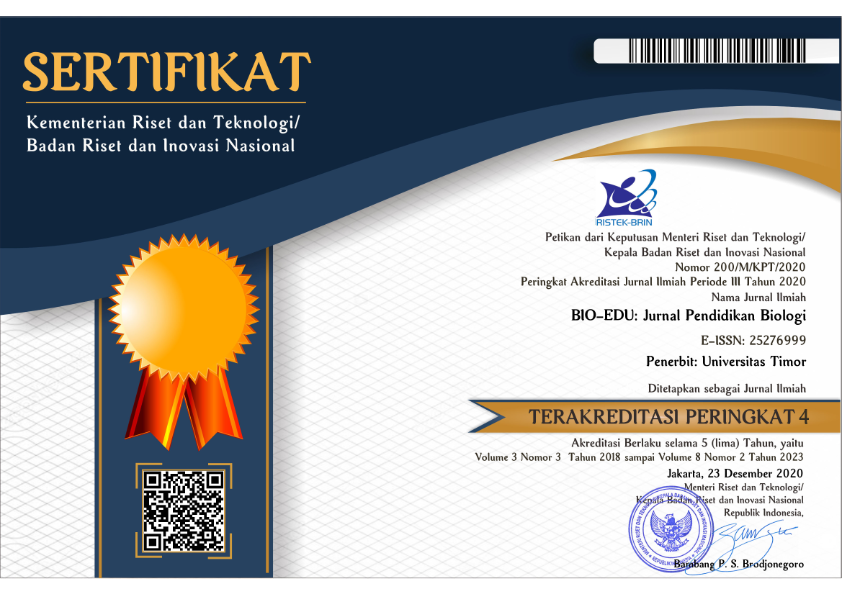Uji Efektivitas Sediaan Sirup Antipiretik Ekstrak Flavonoid Daun Alvokad (Persea Americana Mill) pada Tikus Putih (Rattus Novergicus L) yang Diinduksi Vaksin DPT-HB.
DOI:
https://doi.org/10.32938/jbe.v4i3.423Keywords:
antipyretics, alvocado leaves, flavonoidsAbstract
This study aims to determine the most effective dose in reducing fever in white rats induced by DPT-HB vaccine. The research method is an experimental laboratory using the method without heating for the manufacture of syrup. The results of initial temperature measurements in all treatment groups of white rats which is the normal temperature of the test animals before the DPT-HB vaccine is obtained ranged between 35.10C-37.10C. after 2 hours of DPT-HB vaccine injection, the body temperature of the white rats was measured again and the results obtained were 36,930C-38,430C. an increase in body temperature after 2 hours of injecting this vaccine compared to the results of measuring body temperature before the vaccine is injected is a sign that the test animal has experienced a fever. The negative control group which was given syrup without extract orally, showed the body temperature of the test animals had decreased as the temperature after injecting the vaccine. On the administration of alvocate leaf flavonoid syrup, the dose ¼ showed a decrease of 0.40C. For the administration of dosage flavonoid syrup extract dosage 1, it showed that the body temperature of the test animals had a temperature drop of 1,330C. And administration of Alvocado leaf flavonoid syrup extract dose 2, showed that the body temperature of the test animals had a temperature drop of 0.6 . While the administration of Alvocado leaf flavonoid extract syrup dose 3, showed that the body temperature of the test animals experienced a temperature increase of -0.2 . From the results obtained, it can be concluded that the most effective dose of antipyretic syrup of alvocado leaf flavonoid extract is dose 1.
Downloads
Published
Issue
Section
License
The Authors submitting a manuscript do so on the understanding that if accepted for publication, the copyright of the article shall be assigned to BIO-EDU: Jurnal Pendidikan Biologi and Departement of Biology Education, Universitas Timor as the publisher of the journal. Copyright encompasses rights to reproduce and deliver the article in all form and media, including reprints, photographs, microfilms, and any other similar reproductions, as well as translations.
BIO-EDU journal and Departement Biology Education, Universitas Timor, and the Editors make every effort to ensure that no wrong or misleading data, opinions, or statements be published in the journal. In any way, the contents of the articles and advertisements published in BIO-EDU are the sole and responsibility of their respective authors and advertisers.
Users of this website will be licensed to use materials from this website following the Creative Commons Attribution-ShareAlike 4.0 International License.



















